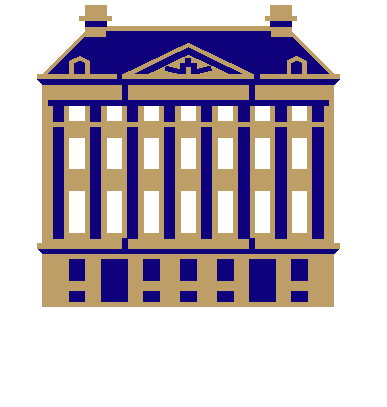HSDIP
Heuristics and Search for Domain-Independent Planning
An ICAPS 2018 Workshop
Delft, The Netherlands
June 26, 2018
Heuristics and search algorithms are the two key components of heuristic search, one of the main approaches to many variations of domain-independent planning, including classical planning, temporal planning, planning under uncertainty and adversarial planning. This workshop seeks to understand the underlying principles of current heuristics and search methods, their limitations, ways for overcoming those limitations, as well as the synergy between heuristics and search.
Proceedings
The proceedings are now available here.
Program
Completeness-Preserving Dominance Techniques for Satisficing Planning
Álvaro Torralba
Unchaining the Power of Partial Delete Relaxation, Part II: Finding Plans with Red-Black State Space Search
Maximilian Fickert, Daniel Gnad and Joerg Hoffmann
On Computational Complexity of Automorphism Groups in Classical Planning
Alexander Shleyfman
Analyzing Tie-Breaking Strategies for the A* Algorithm
Augusto B. Corrêa, André Grahl Pereira and Marcus Ritt
Online Refinement of Cartesian Abstraction Heuristics
Rebecca Eifler and Maximilian Fickert
Reformulating Oversubscription Planning Tasks
Michael Katz, Vitaly Mirkis, Florian Pommerening and Dominik Winterer
Relaxed Decision Diagrams for Cost-Optimal Classical Planning
Margarita Paz Castro, Chiara Piacentini, Andre Augusto Cire and Chris Beck
Relaxed Modification Heuristics for Equi-Reward Utility Maximizing Design
Sarah Keren, Luis Pineda, Avigdor Gal, Erez Karpas and Shlomo Zilberstein
Accounting for Partial Observability in Stochastic Goal Recognition Design: Messing with the Marauder's Map
Christabel Wayllace, Sarah Keren, William Yeoh, Avigdor Gal and Erez Karpas
Application of MCTS in Atari Black-box Planning
Alexander Shleyfman, Alexander Tuisov and Carmel Domshlak
Representing General Numeric Uncertainty in Non-Deterministic Forwards Planning
Liana Marinescu and Andrew Coles
- Patrik Haslum, Australian National University, Canberra
- Malte Helmert, University of Basel, Switzerland
- Hector Geffner, Universitat Pompeu Fabra, Spain
- Álvaro Torralba, Saarland University, Germany
Topics and Objectives
Search guided by heuristics, automatically derived from a declarative formulation of action effects, preconditions and goals, has been a successful approach to domain-independent planning. From the initial success of heuristics based on syntactic relaxations and abstractions, the theory and practice of developing novel heuristics has become more diverse, often borrowing concepts and tools from Optimisation and Satisfiability, and more boldly, tackling more expressive planning languages.
In parallel to the increasing maturity of the methods and tools used to derive heuristic methods, important theoretical results have brought around a more clear image of how heuristic methods relate to each other. For instance, it has been shown that classic frameworks for heuristic search as planning can be encoded symbolically and their execution simulated via off-the-shelf satisfiability solvers. Groundbreaking theoretical work has shown how heuristic methods can be grouped into distinct families, depending on whether they can or cannot be shown to dominate or be compiled into each other.
As a result, the formulation of heuristics for domain-independent planning is increasingly being less about describing procedures that exploit specific features in declarative information, and more about describing auxiliary constraints that make apparent those features to off-the-shelf solvers that operate over a logical or algebraic theory that over-approximate the set of valid plans and compute the heuristic estimator.
Last, but not least, there is a growing realization that the search algorithm used can significantly amplify or reduce the utility of specific heuristics. Recent work that highlights the pitfalls latent in well-known search algorithms, also suggests opportunities to exploit synergies between the heuristic calculation and the search control.
The workshop on Heuristics and Search for Domain-Independent Planning (HSDIP) is the 10th workshop in a series that started with the "Heuristics for Domain-Independent Planning" (HDIP) workshops at ICAPS 2007. At ICAPS 2012, the workshop was changed to its current name and scope to explicitly encourage work on search for domain-independent planning.
Examples of typical topics for submissions to this workshop are:
- automatic derivation of heuristic estimators for domain-independent planning
- formal results showing equivalence or dominance between heuristics
- novel heuristic methods dealing with planning with numeric variables and effects, partial observability and non-deterministic action effects
- heuristic estimators for domain-independent planning via procedures or suitably defined encodings of declarative descriptions of planning tasks into Satisfiability or Optimisation
- novel search techniques for domain-independent planning that explicitly aim at exploiting effectively the properties of existing heuristics
- empirical observations of synergies between heuristics and search in domain-independent planning
- challenging domains for existing combinations of heuristics and search algorithms
To coincide with the special track on Operations Research at this year's ICAPS, we encourage authors to submit papers pertaining to the intersection between heuristics and OR techniques. In particular, work that addresses one of the following areas is highly encouraged:
- The use of CP and OR techniques for the computation of heuristics in planning.
- The development of heuristics in OR (including CP, MIP, SAT, etc) that are tailored to improving the efficiency of OR solvers on planning encodings.
- Planning-based techniques to improve existing OR solvers on planning encodings (e.g., pre-processing computation of redundant constraints, improved lower or upper bounds, etc).
Submissions
Please format submissions in AAAI style (see instructions in the Author Kit at http://www.aaai.org/Publications/Templates/AuthorKit18.zip) and keep them to at most 9 pages including references. Authors considering submitting to the workshop papers rejected from the main conference, please ensure you do your utmost to address the comments given by ICAPS reviewers. Please do not submit papers that are already accepted for the main conference to the workshop.
Submissions should be made through EasyChair: http://easychair.org/conferences/?conf=hsdip2018.
Deadlines and Dates
Submission deadline: March 16th, 2018 (UTC-12 timezone)
Notification: April 13th, 2018
Camera Ready: May 25th, 2018
Workshop: June 26, 2018
Every submission will be reviewed by two members of the organizing committee according to the usual criteria such as relevance to the workshop, significance of the contribution, and technical quality. The review process will be single-blind: the authors' identity will be known to the reviewers, but not vice versa.
Submissions sent to other conferences are allowed if this does not interfere with their submission rules. Submissions under double-blind review in another conference must be anonymous. In particular, submissions of papers under review for IJCAI18 must be anonymous.
The workshop is meant to be an open and inclusive forum, and we encourage papers that report on work in progress or that do not fit the mold of a typical conference paper.
At least one author of each accepted paper must attend the workshop in order to present the paper. Authors must register for the ICAPS main conference in order to attend the workshop. There will be no separate workshop-only registration.
Workshop Organizers
- Guillem Francès, University of Basel, Switzerland
- Daniel Gnad, Saarland University, Germany
- Michael Katz, IBM T.J. Watson Research Center, NY, USA
- Nir Lipovetzky, University of Melbourne, Australia
- Christian Muise, AI Agent Design and Instantiation Lab of IBM in Cambridge, MA, USA
- Miquel Ramirez, University of Melbourne, Australia
- Silvan Sievers, University of Basel, Switzerland
Accepted Papers
- Relaxed Modification Heuristics for Equi-Reward Utility Maximizing Design
Sarah Keren, Luis Pineda, Avigdor Gal, Erez Karpas and Shlomo Zilberstein - Analyzing Tie-Breaking Strategies for the A* Algorithm
Augusto B. Corrêa, André Grahl Pereira and Marcus Ritt - Completeness-Preserving Dominance Techniques for Satisficing Planning
Álvaro Torralba - Online Refinement of Cartesian Abstraction Heuristics
Rebecca Eifler and Maximilian Fickert - Accounting for Partial Observability in Stochastic Goal Recognition Design: Messing with the Marauder's Map
Christabel Wayllace, Sarah Keren, William Yeoh, Avigdor Gal and Erez Karpas - Unchaining the Power of Partial Delete Relaxation, Part II: Finding Plans with Red-Black State Space Search
Maximilian Fickert, Daniel Gnad and Jörg Hoffmann - Relaxed Decision Diagrams for Cost-Optimal Classical Planning
Margarita Paz Castro, Chiara Piacentini, Andre Augusto Cire and Chris Beck - Application of MCTS in Atari Black-box Planning
Alexander Shleyfman, Alexander Tuisov and Carmel Domshlak - On Computational Complexity of Automorphism Groups in Classical Planning
Alexander Shleyfman - Representing General Numeric Uncertainty in Non-Deterministic Forwards Planning
Liana Marinescu and Andrew Coles - Reformulating Oversubscription Planning Tasks
Michael Katz, Vitaly Mirkis, Florian Pommerening and Dominik Winterer












